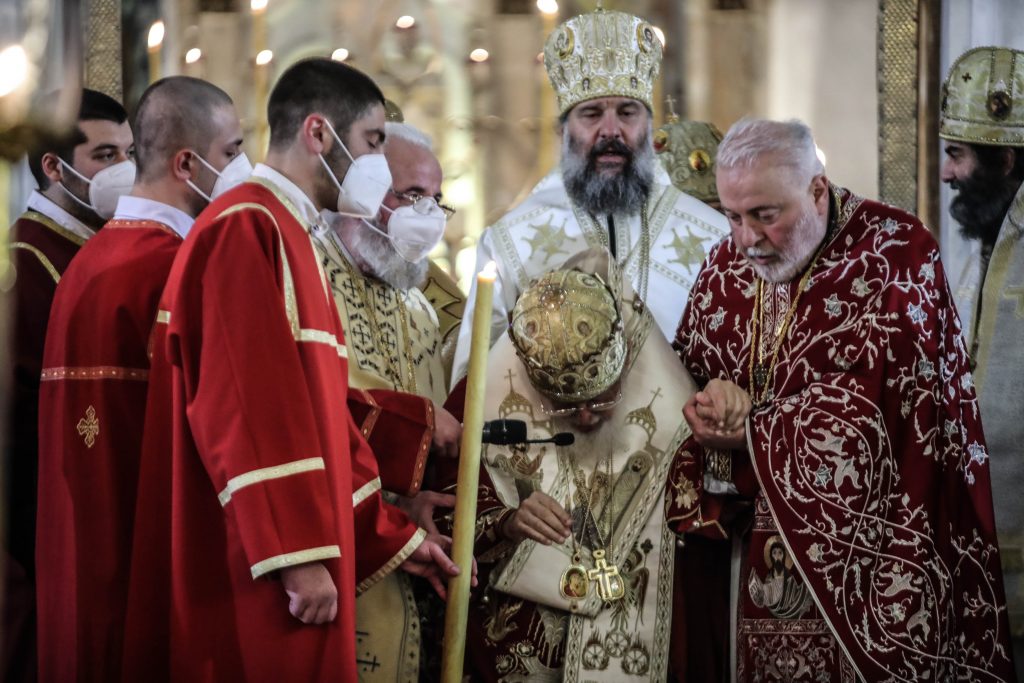In his annual Easter epistle, Georgian Orthodox Church Patriarch Ilia II stated that “non-believers,” albeit acknowledging the human imperfection, “are instead of [advocating for] connection with God and spiritual cleansing, offering an existence in which, on one hand, robots will have a domineering function and, on the other hand, artificial intelligence will complement human inferiority.”
According to the epistle, presented on the night of May 1-2 in the Holy Trinity Cathedral of Tbilisi, “contemporary atheist thought prepares to create a different reality, and attempts to revise fundamental principles of human existence aiming to blur the line between the real and imaginary, human and mechanical, vital and chimerical through arbitrary modeling and develop new, earlier unknown forms of control and power.”
“Philosophers call this period of social development post-humanism, stressing that there is a deliberate breach of generally existing norms, decay of state institutions and structures, fall of education level, the disintegration of foundations for deep thought,” said the Patriarch, the nation’s most revered man.
“And against the backdrop of the ‘crisis order,’ the consciousness in which national feelings are disappeared, love, kindness, and justice… are falsified, the individual ideal is prospectless and faded are supported,” the epistle went on, adding that “traditional identities defining the human being – ‘man’ and ‘woman’, ‘family values’ have been erased.”
Patriarch Ilia II noted that, in addition to that, towards religion in general and, in Georgia, towards the Orthodox Church “in particular,” there were “clearly negative attitudes, hate speech, organized support for individual and institutional discrediting attempts” by certain groups in the public and some media outlets.
This post is also available in: ქართული (Georgian) Русский (Russian)

